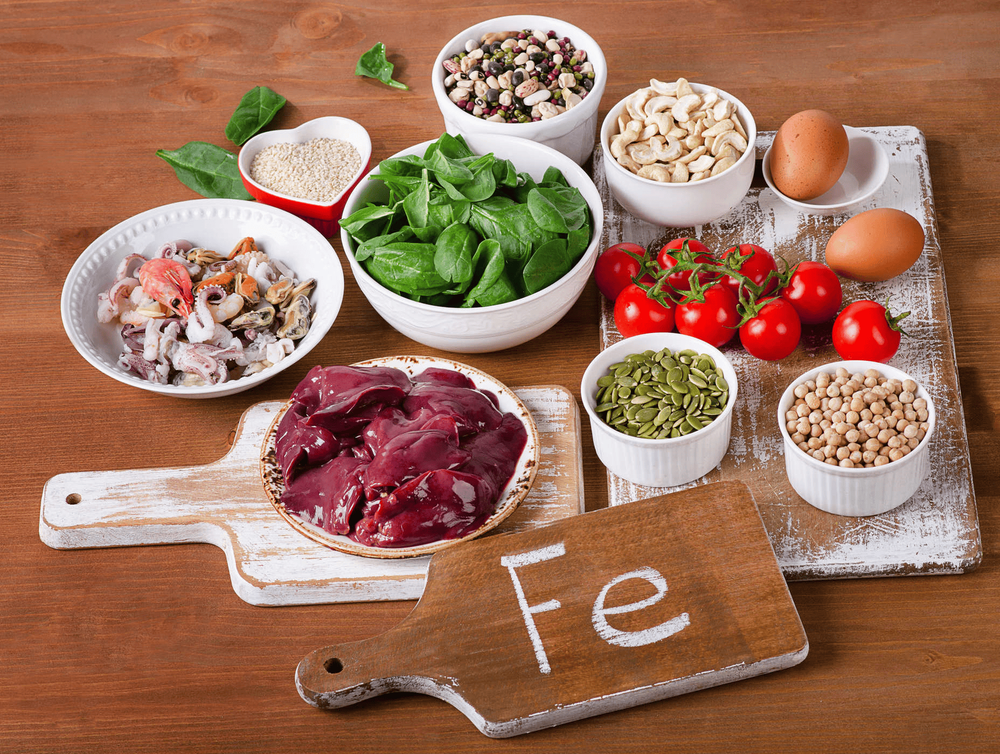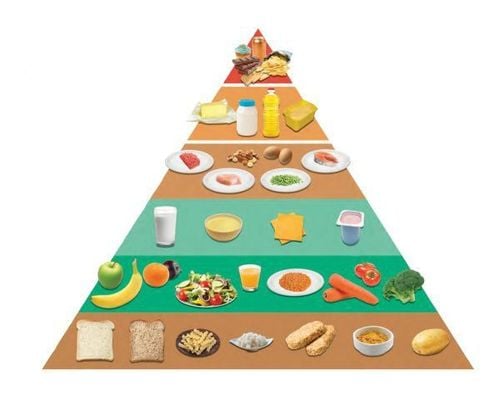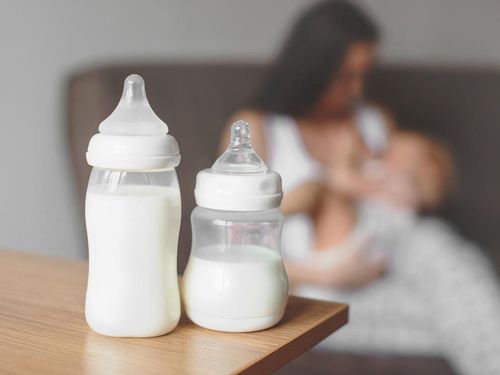This is an automatically translated article.
Growing children, especially those without a varied diet, sometimes don't get enough vitamins through food. Therefore, all children aged 6 months to 5 years need a daily vitamin supplement.1. Do weaning babies need extra vitamins?
Breast milk is often considered the "perfect" and ideal food for babies because it contains all the vitamins and nutrients that babies need. However, in most cases, breast milk or formula only provides everything a baby needs for the first four to six months. After 4 to 6 months of age, when your baby's diet is gradually changing from an all-liquid diet to a diet of more and more solid foods (weaning), your doctor may recommend a vitamin supplement. for children.
Newborns don't need to eat a wide variety of foods, but additional supplements may still be necessary, especially for premature babies, low birth weight babies, babies who regularly drink less breast milk or formula than others. other children of the same age or have chronic health problems that affect their ability to eat.
In addition, breast milk nutrition can be affected if the mother's diet is not safe and although once the baby has started solid foods, the amount of nutrients received may contain many vitamins and minerals but sometimes still not enough compared to the needs of children. Here are some supplements that your doctor may recommend for your child.
2. Iron
Iron is an essential mineral for healthy blood cells as well as supporting brain development. Newborns need iron to prevent iron deficiency and iron-deficiency anemia.Breast milk and formula both contain iron, but around the time your baby starts solids, iron requirements will skyrocket from 0.27mg per day at 6 months old to 11mg per day when babies are 7 to 12 months old. At that point, it's important for your baby to get a good source of iron from food. Food sources of iron include pureed meats, iron-fortified cereals, and pureed legumes such as lentils, kidney beans, lima beans, black beans, and pinto beans.
Your doctor may also recommend iron supplements if your baby is not eating enough iron-rich foods. Premature babies have less iron stores than at birth and often need to take iron supplements.

Sắt có trong một số loại thực phẩm từ thiên nhiên
3. Vitamins EASY
Vitamin D is an essential vitamin for building strong bones, because breast milk lacks this essential nutrient, doctors recommend that all breastfed babies get 400 IU of vitamin D a day as a supplement. starting from birth. Babies who are exclusively or partially formula-fed but drink less than 32-ounces of formula per day also need 400 IU of vitamin D daily.
Our body produces vitamin D when the skin is exposed to the sun. But for the first six months, babies shouldn't be in the sun, so it's difficult for them to get enough vitamin D. Besides, babies' skin is very thin and fragile and every minute of sun exposure increases the risk of skin cancer and wrinkling later on even if the skin is not burned. Sunscreen helps keep kids safe in the sun, but it also blocks the rays that help the body produce vitamin D.
4. Vitamin B12
Vitamin B12 is essential for the development of the nervous system and prevents anemia. This vitamin is found naturally in fish, meat, poultry, eggs, milk and dairy products. If you're breastfeeding and don't eat a lot of animal protein, it's important to have a regular and reliable source of vitamin B12, whether it's from a supplement or a fortified food to your baby's diet. Contains a full range of vitamins.
5. Vitamin A
Vitamin A is very important for babies and children and they are often not getting enough. Vitamin A strengthens the immune system, supports vision health and keeps skin healthy. Infants and children 6 months to 5 years of age should be given vitamin A supplements to promote growth, unless they are receiving 500ml of formula per day.
Good sources of vitamin A include dairy products, fortified fats, carrots, sweet potatoes, dark green vegetables, such as spinach, cabbage, and broccoli.

Một số loại thực phẩm giàu vitamin A
6. Vitamin C
Vitamin C is very important for the health in general and the immune system of children in particular. It also helps their bodies absorb iron. Good sources of vitamin C include oranges, kiwis, strawberries, broccoli, tomatoes, chili peppers.. for quality. If children are not provided with adequate and balanced nutrients, it will lead to diseases of excess or lack of nutrients, which adversely affect the comprehensive development of children in terms of physical, mental and motor skills.
The period of baby eating solid foods is an extremely important period to help children develop comprehensively. Children who do not eat properly are at risk of micro-mineral deficiencies, causing anorexia, growth retardation, malabsorption, etc. If they notice the above signs, parents should supplement their children with supportive products. The supplement contains lysine, essential micro-minerals and vitamins such as zinc, chromium, selenium, and B vitamins to help fully meet the nutritional needs of children. At the same time, these essential vitamins also support digestion, enhance nutrient absorption, help improve anorexia, and help children eat well.
Parents can learn more:
Signs of zinc deficiency in children
Micronutrient deficiency and failure to gain weight in children
Please regularly visit Vinmec.com website and update useful information to take care of your child. Take care of the baby and the whole family.
Reference sources: babycenter.com, whattoexpect.com, nhs.uk













